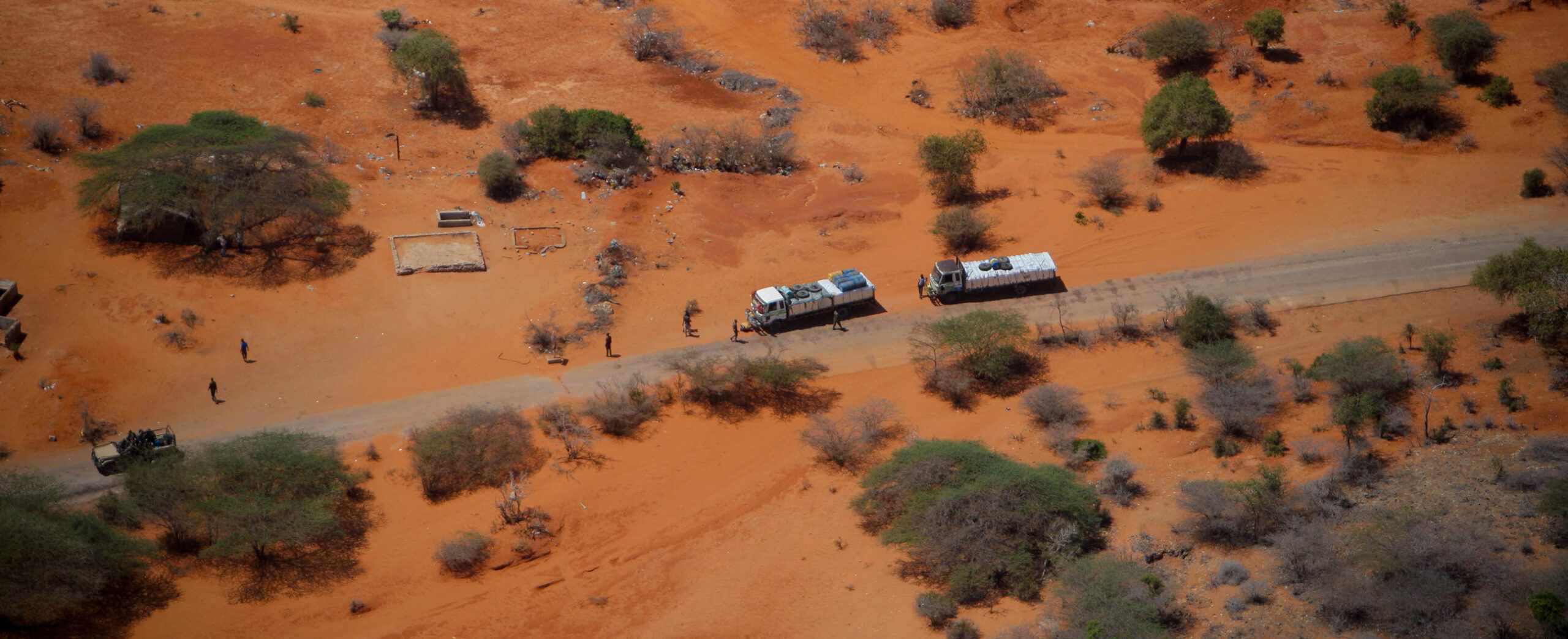The US has been fighting the armed group Al Shabaab for years in Somalia. New PAX reporting highlights the disastrous impact of years of airstrikes on Al Shabaab-controlled territory on civilians, both in the short and long term. In doing so, the report raises questions about the desirability of the overall US military approach in light of the significant harm it causes, combined with an apparent failure to bring peace and security to Somalia.
Early 2022, PAX consultant Amanda Sperber travelled to Jubbaland, an area in southern Somalia that is largely under Al Shabaab control, to speak to civilians who allege having experienced harm from US airstrikes. She found that the airstrikes have a disruptive impact on Jubbaland society, negatively affecting a broad group of civilians in many ways. Much of this goes unreported and unnoticed internationally. Further, while civilians suffer under Al Shabaab rule, they generally do not believe that the airstrikes represent a sustainable solution to the conflict. Rather, some argue that the airstrikes and the harm they cause are in fact used by Al Shabaab as a recruitment tool, using people’s grievances and anger against the US as a motivator to join the armed group.
Direct and reverberating civilian harm from US airstrikes
While the US maintains that, in years of military activity, its airstrikes have killed only five civilians in the whole of Somalia, estimates of civilian harm by monitoring organizations are much higher. While this research focused only on one region in Somalia, we received several allegations of civilian fatalities, including a number of children, adding to existing doubts about the US’ low civilian casualty estimate. Beyond deaths, the report found that many civilians suffer from (chronic) injuries and trauma. Indirectly, the airstrikes have an even broader disruptive impact: they contribute to social and communal tensions, result in displacement and lead to considerable economic harm, for instance when livestock is killed or people become unable to work because of their injuries. Acknowledgement of civilian harm by the US is rare.
Can airstrikes bring peace to Somalia?
The US military is active in Somalia to combat the threat posed by Al Shabaab. Years of airstrikes, however, do not appear to have weakened the group. While civilians in Jubbaland suffer under the group’s rule, they too suffer under the militarized response to the conflict. In fact, many interviewees argue that the airstrikes are ineffective because many Somalis do not join the group out of belief, but because they are forced to or because they perceive a lack of other options. As Al Shabaab is the de facto governing entity in Jubbaland, Al Shabaab ‘membership’ is further a complicated matter and interviewees and analysts expressed doubt as to the US’ ability to at all times properly distinguish between Al Shabaab fighters, Al Shabaab members with a non-combat function and civilians who merely happen to live in Al Shabaab-controlled territory. This greatly adds to the risk that civilians are harmed in US airstrikes.
The way forward
PAX calls on the US Department of Defense and its Africa Command to cease all airstrikes in Somalia until there has been (1) an independent review of the military’s ability to distinguish between combatants and civilians, and (2) an independent review that weighs the risks of civilian harm against the military gains of US operations in Somalia, also taking into account reports that the airstrikes may have the adverse effect of potentially serving as a recruitment tool for Al Shabaab. After years of relatively little military success and considerable civilian suffering, it is time the US reassesses its position and seeks less harmful ways to contribute positively to the safety and security of civilians in Somalia.
Further reading
- Read the full report: ‘It is too much to kill three or four Al Shabaab’: Civilian perceptions on Al Shabaab and harm from US airstrikes in Jubbaland, Somalia.
- On Civilian Harm, a PAX book exploring civilian harm from violent conflict across thirteen cases.
- After the Strike, a report on the direct and reverberating civilian harm of the 2015 Dutch airstrike on Hawija, Iraq.




